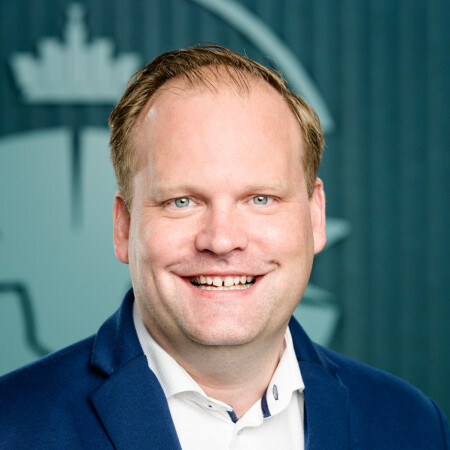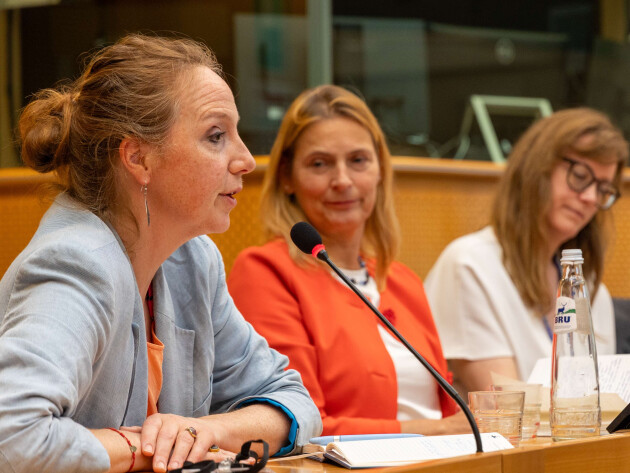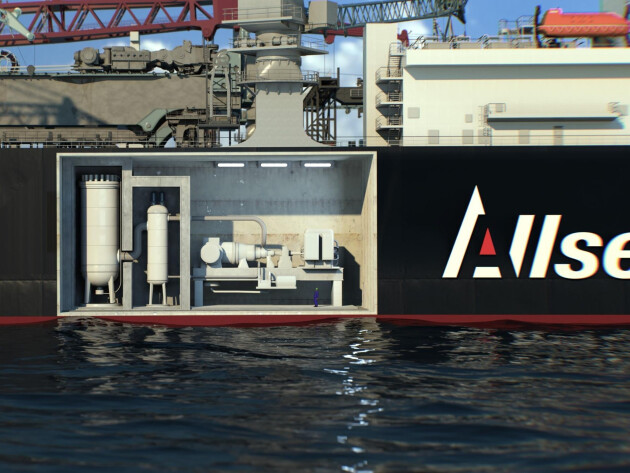
Concrete global climate measures for shipping
The KVNR reasonably satisfied with IMO principle agreement, but still much work to be done
Today, the member states in the environmental committee of the International Maritime Organization (IMO) have reached a principle agreement on a package of regulations that will come into effect on January 1, 2028, to phase out greenhouse gas emissions from global shipping by 2050. The Royal Association of Netherlands Shipowners (KVNR) is pleased with the outcome, despite still much work to be done by 2028.
On behalf of the KVNR, climate advisor Nick Lurkin was present in London for the past two weeks to closely follow the climate negotiations:
"The agreement contains a fairly complex system that includes not only a set price on carbon but also an emission trading system (ets) based on carbon credits that shipowners can trade among themselves and balance across their fleet (poolig mechanism). We would have preferred a global levy on greenhouse gas emissions or fuel combined with a fuel standard, but that seemed unacceptable to some major IMO member states."
According to Lurkin, it became clear that it was not easy to reach a joint final result due to the rarity of a vote:
“I have been coming to the IMO for eleven years, but this is the first time I have experienced a vote. Very exciting.”
Concrete measures
With this principle agreement, the IMO is the first UN agency to agree on concrete climate measures for a globally operating sector. After final adoption by the IMO members states of the measures during MEPC in October, one of the measures that will be introduced on January 1, 2028, is both technical and economic. Shipowners will then have to meet increasingly stringent requirements every year, based on the potential greenhouse gas emissions of marine fuels.
The assessment of this is done from well to wake. This concers not only the ship's emissions but also the level of climate-friendly production the fuel itself. Once a shipowner with a ship exceeds the basic standard, a fee of 380 US Dollars per tonne of greenhouse gas emissions must be paid, which goes into an IMO fund. Shipowners that comfortably meet the standards can receive so-called 'surplus units'. They can then convert these units into money to better close the price difference between conventional marine fuels and the significantly more expensive clean marine fuels, such as green methanol, for example.

Many issues still need to be worked out
The reduction numbers for the standards up to 2035 and the prices for emissions are set from 2028 to 2030. And thanks to the principle agreement, the framework now stands. But many guidelines must also be drawn up by the IMO in the next two years to further develop the regulations.
This includes setting up the management of the 'IMO net zero fund', which will soon collect billions of euros. And there needs to be consideration of the deployment of these funds to stimulate the global production of clean marine fuels. Verification requirements by third parties must also be drafted, as well as establishing emission figures for the various alternative cleaner marine fuels.
Lurkin: "IMO member states and the industry will have two years to implement everything. Two years seems long, but looking at the list of outstanding issues, there is still quite a bit of work to be done!"
Climate measures on a global rather than European level
Not all IMO member states were equally enthusiastic about the text of the principle agreement in the end. Especially oil-producing countries were against the text and considered the ambitions to be too high. Additionally, there were many developing countries in the Pacific that wanted much stricter standards towards 2030 and beyond. They abstained from voting as a protest against the principle agreement. A fairly unique situation arose within the IMO, which almost always works on the basis of consensus. Earlier this week, there was already commotion regarding the Americans with the message that the US would no longer participate in IMO meetings.
The KVNR emphasizes that shipping is a globally operating sector and calls on EU institutions to critically look at FuelEU Maritime and EU-ETS during the revision taking place next year. Lurkin concludes: "Shipping is inherently international and doesn't stop at national or European borders. Climate change is moreover an issue with global consequences. The global approach is therefore more effective, despite the current whims of an international trade war."
Get in touch with...




